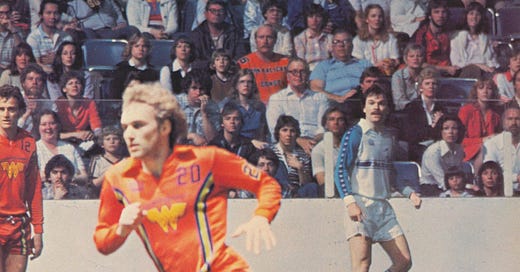Andy Scores! Vol 2 - Part 2/3: The Ghost of Poverty
Andy Chapman vows to be the last Chapman to grow up poor
To read Part 1 of Volume 2, click here.
To read Volume 1, published back in April, become a subscriber (only $7.99 a month!) by clicking above. Here are the links to Part 1 and Part 2 of Volume 1.
And now, Andy Chapman, in his own words:
I was very fortunate to have such an excellent team, with Mike Dowler, and then Kim Roentved and Jorgen Kristensen...I p…
Keep reading with a 7-day free trial
Subscribe to MISL 1980s: The Story of Indoor Soccer to keep reading this post and get 7 days of free access to the full post archives.



